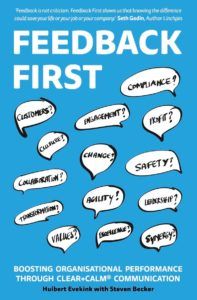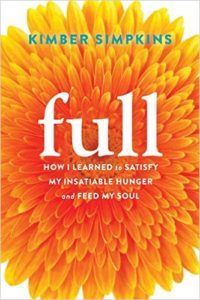Self publish? Traditionally publish?
Don’t expect a black and white answer. I often help emerging authors grapple with the answer to this question near the beginning of the book-writing process.
Why so early? The choice you make will affect whether you write a book proposal (traditionally publish) or the whole book (self-publish).
And the decision is never “cookie cutter.” There are nuances to consider. 
Memoirist Seamus Kirst contacted me while writing his excellent article that appeared today in VICE about why he chose to self-publish his memoir, Shitfaced: Musings of a Former Drunk, and why he’s happy with that decision. (Check it out!)
Our interview for the article led me to thinking about the pros and cons of self-publishing or traditional publishing in the current market.
[bctt tweet=”The Advantages of Self-Publishing” username=”LisaTener”]
Fewer Hurdles: You don’t need to jump through specific hoops to get the book written. For instance, growing a huge platform, or getting a major author for the foreword, or pre-selling a large number of books through special sales, which are becoming almost must-haves for publishers and agents.
Instead, you can get your message out, have an impact, or use a book to support your larger work in the world – whether you are consulting, training, speaking, etc.
The Speed of Light: If you want to focus on getting the book out there, for instance as a speaker or trainer, it may be much more effective to do it faster.
Control, Baby: If you self publish, you can have control over the contents and design: I often point to What the Fork, by Sue Jacques as a great example of beautiful design that might likely have not been as striking with a traditional publisher looking to save money. Some authors I worked with felt very strongly that they didn’t want to change title or contents, that they wanted to maintain control.
If you traditionally publish, the publisher generally has final say about edits, cover, design and more. Now generally, publishers make experienced, wise decisions, but some authors have very strong ideas or don’t want to risk a mistake they don’t have control to correct. If that describes you, self-publishing is likely your best fit.
 Teri Scheinzeit, author of the award winning business book, Success Without Stress, is an executive coach and former designer. Teri wanted a fun and easy to read design to be a big part of making the book inviting to busy entrepreneurs. She self published and the many awards she won, plus the business opportunities the book presented, indicate how well it worked for her.
Teri Scheinzeit, author of the award winning business book, Success Without Stress, is an executive coach and former designer. Teri wanted a fun and easy to read design to be a big part of making the book inviting to busy entrepreneurs. She self published and the many awards she won, plus the business opportunities the book presented, indicate how well it worked for her.
Flexibility to Revise any Time: What happens when new research comes out, you continue to refine your ideas, or you discover errors in punctuation? If your book is traditionally published there’s usually not much you can do until the publisher sells all the copies they printed for the first print run. Yet, if you self-publish, no problem. Make changes any time. It may cost you to have a designer make the changes and upload, and some of the cost will depend upon your publishing contract, but you can do it.
 Feedback First won an American business award and helped first-time author Huibert Evekink launch a new international consulting business. Huibert found his ideas continued to evolve and last we spoke he was working on a new version. Self-publishing gives you that kind of flexibility as a book and ideas evolve.
Feedback First won an American business award and helped first-time author Huibert Evekink launch a new international consulting business. Huibert found his ideas continued to evolve and last we spoke he was working on a new version. Self-publishing gives you that kind of flexibility as a book and ideas evolve.
Ease: Hey, if you’re not looking for a publisher, you don’t need to write a book proposal (though I do encourage you to carefully consider the market for the book, where your book fits in relation to other books on the subject and how you’ll promote and sell books). So, you do need a plan, but it can be simpler than a book proposal. If the particular subject is a crowded field, it can be hard to get a book deal, but an author doesn’t necessarily need to sell tens of thousands of books to make an impact and also support their vision or goals. Large sales numbers may not matter to the self published author.
Some authors worry about quality. Yes, with a traditional publisher you get a seasoned team and lots of professional support, but self-published authors can put together a team of freelancers and create a very high quality book and self publish. Close to half of the self-published authors I’ve worked with have won book awards, attesting to the quality of their work. I often suggest self-published authors apply for prestigious book awards in order to add that seal of approval, so to speak, and show that the book has been vetted, make it stand out from the crowd.
With all those advantages of self-publishing, why traditionally publish at all? Good question. Here’s why:
[bctt tweet=”The Advantages of Traditional Publishing” username=”LisaTener”]
Cachet: An established publisher provides instant name recognition and the sense that the book has been vetted. This can appeal to both book buyers and the media who may be more inclined to interview an author (though it has become much, much easier for self-published authors to be interviewed for national media nowadays as well). Depending on your goals, you may want the cachet of a well known publisher, which can more easily help secure keynote speaking gigs, high profile media interviews, large corporate clients and other opportunities. In fact, this is probably the number one reason for traditional publishing. Yet, there are other important reasons!
Expertise: As I mentioned, a traditional publisher brings a whole, experienced team to your book: editor(s), readers, design team, sales team. They know the market and their audience and have good instincts for what will sell and how to package the information (such as how broad or niche to make a book, title, cover, etc.). This can result in a much more successful book and a greater impact on readers, community and even the world!
Your Time: With traditional publishing, you don’t have to become an expert at all the aspects of publishing; you don’t have to oversee and manage a publishing team; and you don’t need to reinvent the wheel. You can focus on writing and selling the book and let experts take care of the rest. While you can hire experts for self-publishing, you should take a more involved role in each aspect so that you don’t end up with any unfortunate surprises. That brings us to:
The Risk Factor: There’s just more risk in working with a self-publishing company. Many companies compete on price and focus on getting the cheapest services for you, not necessarily the best. That’s why I often recommend working with highly recommended freelancers (recommended by people you trust) and interviewing authors who published with them. There are many scammers out there, so make sure you have an attorney read your contract and be sure to research your publishing choices–from the publishing company or printer to the designer and editor.
Team Synergy: With traditional publishing, you get a whole team that is used to working together: Sales team, editors, designers all in meeting to look at the book from their specific perspectives. So you are more likely to identify any problems or challenges up front, and also to have a book that works in every way for your audience. Plus, the fact that these people work closely with each other in a team environment can lead to creative synergy – the whole being greater than the sum of its parts. You can sometimes work to mimic this with self–publishing but not always as easy. Often publishing companies will sub contract out the work to varied parties, not necessarily working together. Or you can hire freelancers but they may not gel as a team the same way.
Publicity: Here’s an area with many misconceptions. It’s important to know that traditional publishers expect the author to do most of the publicity. As literary agent Linda Konner likes to say, “Publishers are looking to the author to be a publishing partner, not just a writer.” That means you need to actively seek publicity and sell books through your activities, whether you self-publish or traditionally publish.
I worked with an author who got a six figure book deal and was assigned the top publicist, but when initial sales were slow, the publicist was immediately reassigned within a matter of weeks and the author needed to do almost all his own publicity. So, don’t assume publisher will do much of anything. That part is icing on the cake.
Having said that, I’ve seen some publishers do a great deal to support a book – from sending a solo email or article by the author to the publisher’s mailing list (especially niche publishers), to promoting the book on the publishing house’s blog or website, to getting the author speaking gigs and getting high profile national publicity for the book and author.
I always suggest, though, that an author hire their own publicist as well, since publishers can be fickle about publicity and there is a difference between a publicist who is spread thin and one who is paid and focused on you (though this is an area to be careful as you can throw money away and not get much of anything, as well. Interview and research publicists carefully and speak with their clients and former clients about their experience).
[bctt tweet=”Can a Self-Published Book Get a Traditional Book Deal?” username=”LisaTener”]
 Some authors self publish and get picked up by a traditional publisher. For example, Full, by Kimber Simpkins. One month after the book came out, a senior acquisitions editor approached Kimber about publishing the book. New Harbinger made excellent suggestions to make the book resonate for their specific audience and I think you’ll agree that they created a gorgeous cover. Kimber also went on to publish a second book by the author the following year.
Some authors self publish and get picked up by a traditional publisher. For example, Full, by Kimber Simpkins. One month after the book came out, a senior acquisitions editor approached Kimber about publishing the book. New Harbinger made excellent suggestions to make the book resonate for their specific audience and I think you’ll agree that they created a gorgeous cover. Kimber also went on to publish a second book by the author the following year.
Kimber’s case is unusual in that publishers usually look for at least 15,000 books sold before they get interested in a self-published book (this number is, of course, an estimate and varies genre to genre and market to market). In a case like this, though, if the publisher has a relationship with the audience for the book and the book is an excellent fit for their list, they may not be as caught up in platform or sales.
I hope this article has helped you think about your publishing options and your decision whether to self-publish or traditionally publish. Feel free to ask questions about self-publishing vs. traditional publishing or to add your own experiences and advice as a comment below.



Great article Lisa.
It filled in what I was unaware of.
Thank You